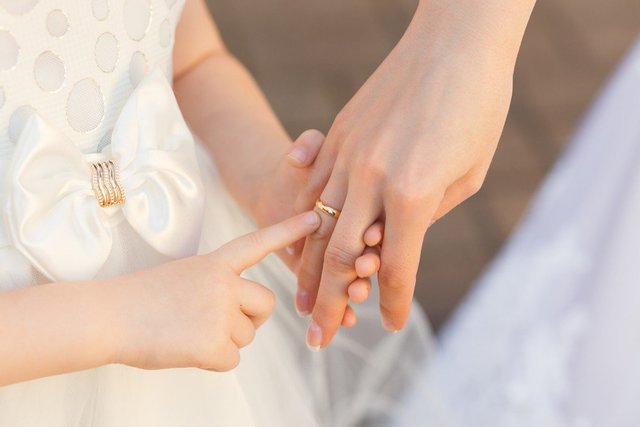Teenagers fight to end child marriage

Child marriage is still rampant in some parts of the archipelago for various reasons, from cultural beliefs to parents who still believe that marriage is an ultimate solution to the economic problem.
While in fact, child brides must sacrifice their adolescence to deal with domestic life, experiencing early pregnancy and facing other possible health problems that can put their lives at risk.
Angelina Ratu, 18, a university student from East Nusa Tenggara (NTT), said child marriage is still common in her hometown. She is one of those lucky young girls who grew up in a family that prioritizes education.
“Many young girls, especially in my area, still fall victim to child marriage. In order to at least minimize it, there must be [communal] self-awareness,” she said, adding that she actively teaches teenagers in her community about the physical and psychological risks of child marriage.
Angelina’s active involvement in advocating education and her aspiration to become a leader brought her to Jakarta to participate in the annual Sehari Jadi Menteri (Minister for a Day) event at the Women’s Empowerment and Child Protection Ministry on Oct. 11 to commemorate this year’s International Day of the Girl.
She was among 21 teenagers who passed a nationwide selection organized by PLAN International Indonesia and the ministry, and supported by UNICEF and non-governmental organization on gender equality Aliansi Aksi.
Prior the event, the 21 teenagers joined a three-day leadership training aimed at empowering them to fight child marriage in their respective communities.
Afterward, they formulated a nine-point strategy to end child marriage, one of which is asking the central government and city administrations to raise the minimum legal marriageable age for children through various regulations, including the government regulation in lieu of law (Perppu), ministerial decree (Permen) and city bylaws.
Currently, the 1974 Marriage Law includes a minimum legal marriage age of 16 years for women and 19 years for men. In some parts of Indonesia, child marriages can involve girls as young as 13 years old.
According to the Central Statistics Agency (BPS) and the Institute for Criminal Justice Reform (ICJR), there has been no significant decrease in the number of child marriages in the past eight years. Young women who wed under the age of 18 accounted for 27.4 percent of total marriages in 2008. The number decreased to 24.7 percent in 2011, but went up to 25.7 percent in 2017.
Kurnia Henderika Alberthus, a high school student who also comes from NTT, said teenagers should be empowered to have the courage to make their parents understand the importance of education. Having the audacity to have such an argument with parents, she said, was really important.
“We have to keep struggling by empowering ourselves with knowledge and tell our parents to know about the consequences [of child marriage],” she told the Post.
“If parents [believe] that education is a priority, they will encourage their children to go to school,” she said.
The 21 teenagers participating in the Minister for a Day event shared the same commitment to stopping child marriages in the country by becoming brand ambassadors in their respective provinces.
“We are proud of this event. The teens have gone through quite a long selection process. We hope you can keep your spirits high and continue your life as champions — as teenagers who pioneer the prevention of child marriage,” Lenny N. Rosalin, the Women’s Empowerment and Child Protection Ministry’s undersecretary overseeing child development, told participants.